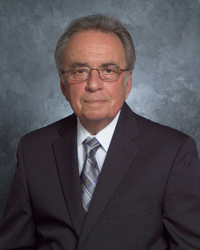
By Rebekah Devorak | Opinions Editor
What’s more threatening to the well-being of a nation: a man in a ski mask who burglarizes cul-de-sac homes or a big-business corporation that swindles millions of public dollars in Ponzi schemes?
For the U.S. Department of Justice, that answer wasn’t obvious until last week.
After years of criticism for treating Wall Street criminals too tenderly, the department announced that it would reform its policies to prioritize the prosecution of individual company employees who commit white-collar crimes.
Considering that the FBI reports that white-collar crimes cost the United States $300 billion annually (approximately 100 times more than all street crime combined), it’s about time.
While the FBI defines white-collar crimes as “lying, cheating and stealing,” a more common definition is a range of various frauds committed by businessmen or government officials. Think Enron and Bernie Madoff, but also think of companies that skimp on safety guidelines or improperly dispose of hazardous materials to cut costs.
Street crime – on the other hand – is a mashup of the typical scenes you see on “Cops”: theft, assault, drugs, etc.
Even though white-collar crimes are significantly more harmful to society on a larger scale, people tend to forget about them.
A prime example of this is the housing crisis that tanked the U.S. economy in 2007. Banks issued loans with easy terms and incentives, which enticed prospective homeowners to agree to risky mortgages thinking that they could refinance the terms later. However, as interest rates began to rise, bad credit revealed itself and home values began to fall, with banks refusing to refinance. Homeowners were forced to foreclose and default on their loans. No one was held accountable despite over 12.8 million people losing their houses, according to a study by North Carolina State University.
That general fear manifests itself in jail culture across the country. According to a 2015 report by the Federal Bureau of Prisons, 93.7 percent of inmates held in federal prisons were charged with crimes classified under street crimes. Only 0.3 percent of inmates were being held for banking and insurance, counterfeit or embezzlement charges. The other 7 percent were crimes of immigration.
Either that means there are not a lot of people committing white-collar crimes, or that the U.S. does a poor job of prosecuting white-collar criminals.
It’s most likely the second. According to Truth Dig, federal prosecution of white-collar criminals has reached a 20-year low, with reports estimating that this year’s prosecution rate will be 12 percent lower than last year. This is despite the fact that white-collar crime has been steadily on the rise since the 1970s.
In fact, white-collar criminals rarely face jail time at all, which was one of the major criticisms of the Department of Justice. Truth Dig reports that 44 percent of all white-collar cases between 2007 and 2011 were resolved with deals or plea bargains that avoided incarceration time (and not coincidentally, right in the middle of the housing crisis.)
The United States’ new policy, which outlines six steps to have criminal and civil investigations focus on prosecuting individual offenders from the start, is a baby step. But the Department of Justice should really consider taking a few leaps to reform criminal justice. It’s no question that our current criminal justice system is warped; when the NAACP reports that the U.S. constitutes only 5 percent of the world’s population yet 25 percent of the world’s prison population, you know there’s a problem with the way things are running now.
The U.S. should, in standard scenarios, avoid sentencing lengthy jail stays to non-violent criminals. That way not only will you free up space in the prisons to hold the white-collar criminals (the American Legislative Exchange Council reports that Pennsylvania jails alone are operating at 109.7 percent over capacity), but that will put the emphasis on sentencing for the severity of the crime committed. That way you don’t have Jeffrey Skilling, from the Enron scandal, and John Doe who decided to joy ride a police car, serving the same sentence length.
Skilling, former Enron president and CEO, was the mastermind behind the company’s unethical business decisions. Using a complex form of accounting, Skilling was able to pass projected profits as actual company gains. Stock prices skyrocketed in response, but the company eventually tumbled into bankruptcy. The New York Times estimates that investors lost billions, and over 20,000 people lost their jobs.
The United States should also limit plea bargaining without incarceration time once the crime cost exceeds a certain amount of money. Then white-collar criminals aren’t released with just a fine (which they can easily repay) and probation.
It’s promising to see the United States make some kind of reform to the white-collar crime policy, but it’s only the beginning. If the U.S. really wants to make some changes that will have dramatic effects on the way that white-collar cases are dealt with, they’re going to have to dig a little deeper.




